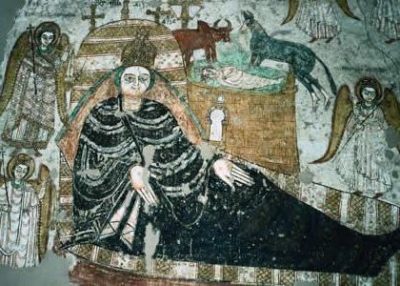Religious leaders in Sudan declare freedom of faith: Animism, Christianity, and Islam
Murad Makhmudov and Lee Jay Walker
Modern Tokyo Times

Islamism and Arabization caused enormous convulsions in the recent history of Sudan. Indeed, in recent times the nation split into ethnic and religious lines with the creation of South Sudan. However, both Sudan and South Sudan have internal ethnic and religious issues – irrespective of faith.
Thus in Darfur the bonds of Islam – just like Christianity in ethnic clashes in South Sudan – can’t erase the enormous complexities of ethnicity, regionalism, power concentration, and political intrigues. Yet, since the demise of Omar al-Bashir and his Islamist regime, positive signs are emerging. Of course, fragility remains in both Sudan and South Sudan. However, if new elites in Khartoum overcome past ethnic and religious issues then this will bode well for both nations.
Voice of America reports, “Sudanese Muslim and Christian religious leaders have agreed to join forces and promote religious freedom in the country, now that the Islamist government of Omar al-Bashir is out of power and a recently signed peace deal includes language saying freedom of religion is a human right.”
This follows on from an accord signed by Abdalla Hamdok, the Prime Minister of Sudan. The accord specified, “Sudan is a multi-racial, multi-ethnic, multi-religious, and multi-cultural society. Full recognition and accommodation of these diversities must be affirmed.”
Ethnic, religious, and political tensions remain in the Blue Nile Region, Darfur, and South Kordofan in Sudan. Similarly, ethnic and political tensions continue to blight South Sudan. Therefore, both nations need to overcome the divisions that hinder Sudan and South Sudan.
Animism, Christianity, and Islam – and fusions of all three faiths – can be found in various parts of Sudan and South Sudan. Likewise, the structures of Animism, Christianity, and Islam are extremely complex based on sectarian affiliation, the richness of culture that led to various thought patterns, and regionalism. Therefore, if religious freedom becomes embedded, it is hoped that this will encourage greater political pluralism in both Sudan and South Sudan.
If this window of opportunity isn’t taken then Islamists will seek to sow division; especially if political upheaval engulfs Khartoum.
https://www.voanews.com/africa/sudanese-christian-muslim-leaders-agree-promote-religious-freedom

PLEASE DONATE TO HELP MODERN TOKYO TIMES
Modern Tokyo News is part of the Modern Tokyo Times group
DONATIONS to SUPPORT MODERN TOKYO TIMES – please pay PayPal and DONATE to sawakoart@gmail.com
http://moderntokyotimes.com Modern Tokyo Times – International News and Japan News
http://sawakoart.com – Sawako Utsumi personal website and Modern Tokyo Times artist
https://moderntokyonews.com Modern Tokyo News – Tokyo News and International News
PLEASE JOIN ON TWITTER
https://twitter.com/MTT_News Modern Tokyo Times
PLEASE JOIN ON FACEBOOK